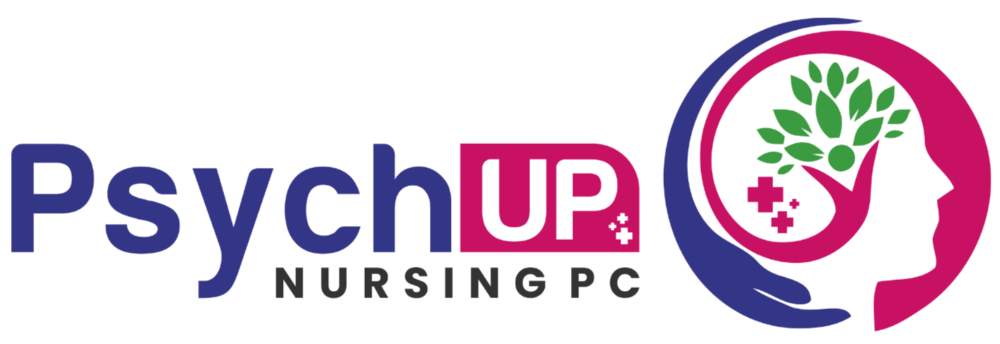Obsessive-Compulsive Disorder (OCD)

What is OCD?
Obsessive-Compulsive Disorder is a mental health condition characterized by the presence of obsessions and compulsions. Obsessions are intrusive and persistent thoughts, urges, or images that cause significant distress. Compulsions are repetitive behaviors or mental acts that an individual feels driven to perform in response to their obsessions. These behaviors are aimed at reducing anxiety or preventing a feared outcome, although they are often excessive or unrelated to the actual threat.
Obsessive-Compulsive Disorder (OCD) is a chronic and often debilitating mental health condition that affects millions of individuals worldwide. It is characterized by recurrent, intrusive thoughts (obsessions) and repetitive behaviors (compulsions) that significantly impact a person's daily life.
Causes and Risk Factors
The exact causes of OCD are not fully understood, but a combination of genetic, neurobiological, and environmental factors may contribute. Common causes and risk factors include:
- Genetics: Having a family history of OCD or related disorders increases the likelihood of developing OCD.
- Brain Chemistry and Structure: Imbalances in certain neurotransmitters, such as serotonin, and abnormalities in specific brain regions may play a role.
- Environmental Factors: Traumatic life events, chronic stress, or childhood adversity can trigger or worsen OCD symptoms.
- Cognitive Factors: Certain cognitive patterns, such as a heightened sense of responsibility or intolerance of uncertainty, may contribute to the development or maintenance of OCD.
Symptoms
OCD symptoms can manifest in various forms, and individuals may experience different combinations of obsessions and compulsions. Common symptoms include:
- Contamination fears: Excessive concern with germs, dirt, or contamination, leading to compulsive handwashing or cleaning rituals.
- Checking: A constant need to check and recheck things (e.g., locks, appliances) to ensure safety or prevent harm.
- Symmetry and orderliness: The intense need for symmetry, precision, or specific arrangements, often resulting in time-consuming rituals.
- Intrusive thoughts: Disturbing, unwanted thoughts or images that go against one's values or morality, leading to repetitive mental acts or avoidance behaviors.
- Counting and arranging: The compulsion to count, repeat numbers, or arrange objects in specific patterns or sequences.
- Hoarding: Persistent difficulty discarding items, resulting in an excessive accumulation of possessions.
Treatment Options
OCD is a treatable condition, and several approaches can help individuals manage and alleviate their symptoms:
- Cognitive-Behavioral Therapy (CBT): Specifically, Exposure and Response Prevention (ERP), a form of CBT, is considered the most effective treatment for OCD. It involves gradually exposing individuals to their obsessions and preventing the associated compulsive behaviors, leading to a reduction in anxiety over time.
- Medication: Selective serotonin reuptake inhibitors (SSRIs), such as fluoxetine or sertraline, may be prescribed to help regulate brain chemistry and reduce OCD symptoms.
- Deep Brain Stimulation (DBS): In severe and treatment-resistant cases, DBS, a surgical procedure that involves implanting electrodes in specific brain areas, may be considered.
We are here to help. Get started today.
Stay connected with PsychUp
Subscribe to our mailing list to receive our latest news and updates.
You're safe with me. I'll never spam you or sell your contact info.
Contact Number
-
+1 (888) 783-1883 (Office)
-
(888) 653-3144 (Fax)
Email Address
Our Locations
PsychUP PC California
-
6245 Delongpre Ave 2nd Floor Los Angeles, CA. 90028
-
2418 S Azusa Ave West Covina, CA. 91792
-
11900 Avalon Blvd # 100, Los Angeles, CA 90061
-
3340 West Ball Road Unit G Anaheim, CA. 92804
-
12062 Valley View Street Suite 140 Garden Grove, CA. 92845
-
1840 North Hacienda Boulevard Unit 12 La Puente, CA. 91744
-
8415 Florence Avenue Unit B Downey CA. 90240
-
11840 Magnolia Avenue Riverside, CA. 92503
PsychUP PC Nevada
-
9017 S. Pecos Road Suite 4425
-
Henderson NV 89074-6611
PsychUP PC Arizona
-
793 N Alma School Rd Suite 5 Chandler AZ 85224
